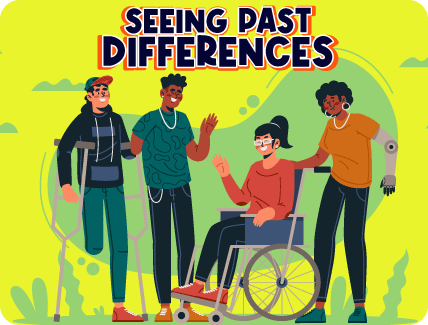

















The United Nations marks the 3rd of December every year as International Day of Persons with Disabilities. For this occasion, we reproduce this piece by Tinkle’s former Editor-in-Chief, Rajani Thindiath, that appeared as the Editorial in Tinkle issue 699.
Hi Friends,
I was reading an article about Andy Clark, a professor from Edinburgh, Scotland. He has these fantastic ideas about the mind and its possibilities. His ideas rang a bell within me. It got me thinking.
Can we live without phones, TV or the internet? Can we imagine life without electricity or even digital maps? How about one without pen, paper, calculators and computers? These things help us function better. Communication would be slow without phones. Our leisure hours would be boring without the TV or the internet. Without electricity we would have no light, no breeze and we would end up too hot or too cold. And without digital maps, pen, paper, calculators and computers, we would be lost!
Now if these things were to be taken away from us, we would become helpless in a way, right? Seen from that point of view, we all take the help of devices and functions to make the best use of our time. So, why should we look down upon the ‘disabled’, for doing the same? Someone who uses a hearing device to hear better? Someone else who uses a stick to navigate in the absence of vision? Someone who uses a crutch or a wheelchair?
Think about it. In the far future, surgeons may change human bodies enough to make them faster and stronger or even think better. They do this even now, except they do it to repair parts of the body—a bad knee, a weak heart or a fractured hand. Does a repaired or aided body part change who we are in any way?
Now, think and tell me, if all of us rely on external devices to function, can we truly separate some of us on the basis of physical disability? In the same way that some of us need spectacles to see, some others need ramps for wheelchairs or books in Braille to read. If we look at these needs as normal, perhaps we can stop differentiating? Perhaps we will be as outraged not to see a ramp in a building as we are to see no lift, or no Braille books in a public library as no books?
Hugs,
Rajani